
This story is published in YFile’s New Faces feature issue 2023. Every September, YFile introduces and welcomes those joining the York University community, and those with new appointments.
The York University Faculty of Science welcomes 12 new faculty members this fall.
"We are thrilled to welcome our newest cohort of high-calibre researchers and instructors to our five departments and one division," said Dean of Science Rui Wang. "By recruiting talented people with diverse backgrounds, world views and expertise, we are not only ensuring the best learning experience for our students, but also cultivating integrity and principles of equity, diversity and inclusion in our community and in all that we do at the Faculty of Science.”
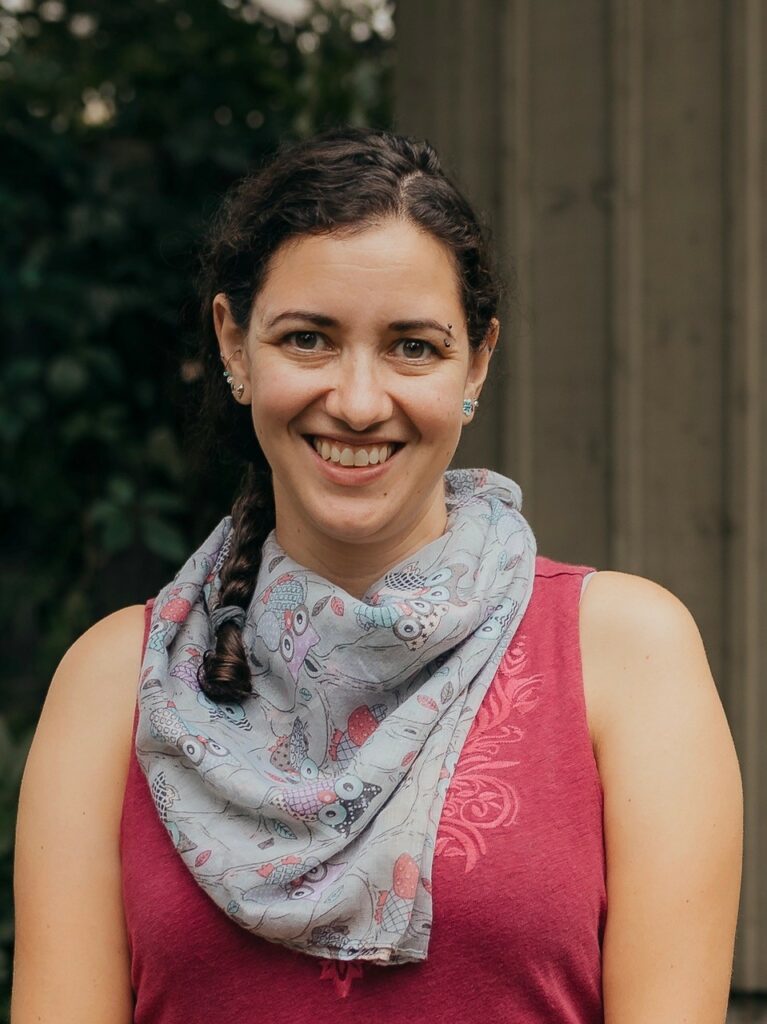
Eryn McFarlane
Eryn McFarlane joins the Department of Biology as an assistant professor. She researches anthropogenic hybridization, using both the genetics of wild animals and slightly less wild computer simulations for theoretical work. McFarlane did her undergraduate and master’s degrees at the University of Guelph. After Guelph, she was awarded a Natural Sciences & Engineering Research Council (NSERC) Postgraduate Scholarship for her PhD at Uppsala University in Sweden, followed by a Swedish Research Council International Postdoc Grant to do a postdoctoral fellowship at the University of Edinburgh in Scotland. Most recently, she has been part of a National Science Foundation-funded project studying predictive modelling at the University of Wyoming.
In the future, her research group will continue work to understand and predict anthropogenic hybridization, with a particular focus on understanding the context dependence of genetic incompatibilities in changing environments.
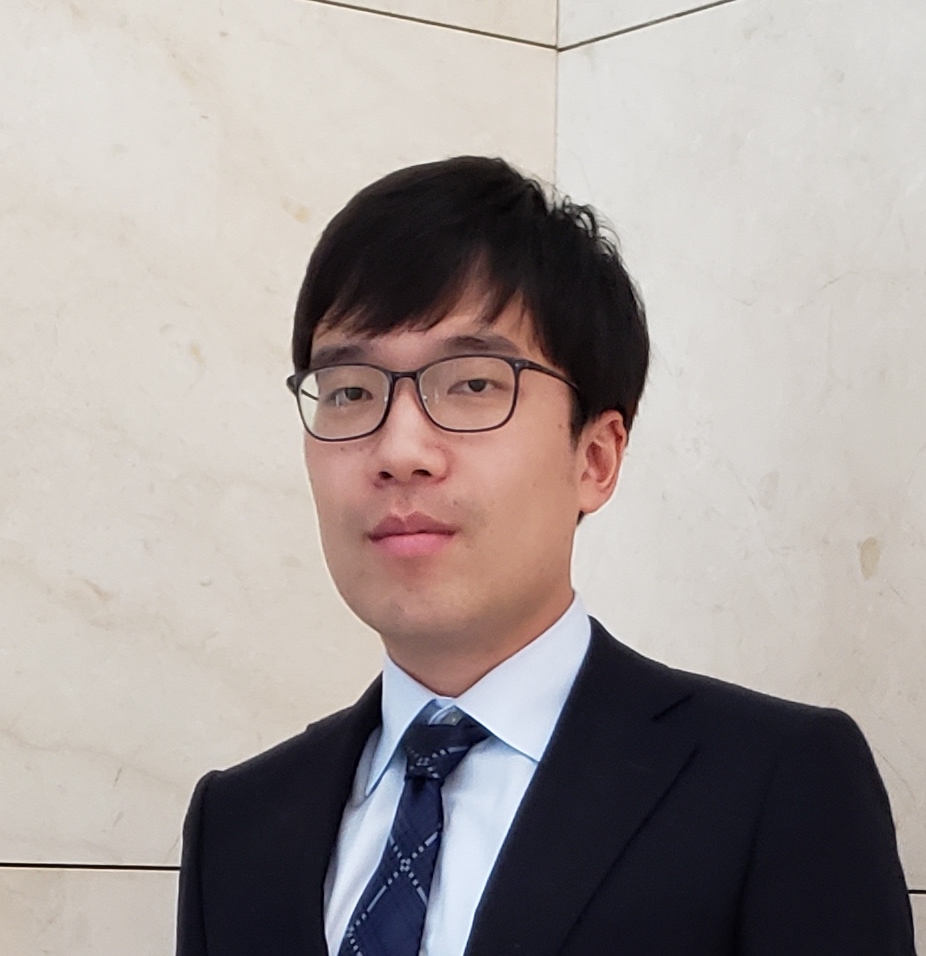
Bill Kim
Bill Kim joined the Faculty of Science as an assistant professor in the Department of Chemistry. He completed his honours bachelor of science degree under the supervision of Professor G. Andrew Woolley at the University of Toronto. Kim then pursued a direct PhD degree with Professor David R. Liu at Harvard University from 2012 to 2018, during which time Kim contributed to the burgeoning field of genome editing. Afterwards, he applied his genome editing expertise at Pairwise Plants, a startup company focused on agriculture.
Kim also worked as a senior scientist and the director of the Mammalian Cell Facility. There, he expanded the mutagenic capabilities of clustered regularly interspaced short palindromic repeats (CRISPR) base editors and developed novel sequence replacement methods. Subsequently, he transitioned into academia, where he could engage in teaching and mentorship of young scientists alongside spearheading a research program with significant impact.
Kim is a world leader in genome editing technology development. Throughout his scientific career spanning 11 years, his work on genome editing technology development has been published in world-class journals including Nature, Nature Biotechnology, Nature Communications and Science Advances. His research group specializes in engineering biomolecules to accelerate biological discovery. He develops novel CRISPR mutagens capable of generating new forms of targeted genetic variations and studies how these tools can be applied to advance human health and agricultural biotechnology.

Lana Hébert
On July 1, Hébert began a three-year term as a contractually-limited assistant professor (teaching stream) within the Department of Chemistry. She received her honours bachelors of science degree from Memorial University of Newfoundland in 2013 before obtaining a master of science degree from Wilfrid Laurier University (WLU) in 2018, and remained there to pursue a doctoral degree, to be conferred this fall.
Throughout graduate school, Hébert has frequently published and presented on research topics such as the preparation and properties of new fluorescent materials for organic electronics; her discovery of a previously unknown chemiluminescent reaction; and topics relating to crystallography and crystal engineering.
Regarding avenues of future research, her interests predominantly lie in the area of chemical education research, namely: the construction of novel, effective pedagogical approaches for organic chemistry instruction; the investigation of any bio-psycho-socio-economic factors that correlate with interest and aptitude towards chemistry curricula, pedagogies and teaching styles; and unique methods of incorporating X-ray crystallography content within undergraduate chemistry curricula.
Hébert is an active member within the Canadian chemistry and North American crystallography communities. As a vocal proponent of furthering decolonisation, equity, diversity and inclusion work in science and academia, and also as one of the few transgender chemistry professors in Canada, she has served on several committees furthering diversity and inclusion ideals in both national (Canadian Society for Chemistry, CSC-WIDE) and institutional (WLU) settings. Serving her community in this way has strongly informed the teaching philosophy, and overall commitment to a pedagogy of care, that she employs in her courses.
Eager and excited to share her love of the chemical sciences, Hébert hopes to instil a similar passion for chemistry within her future students.
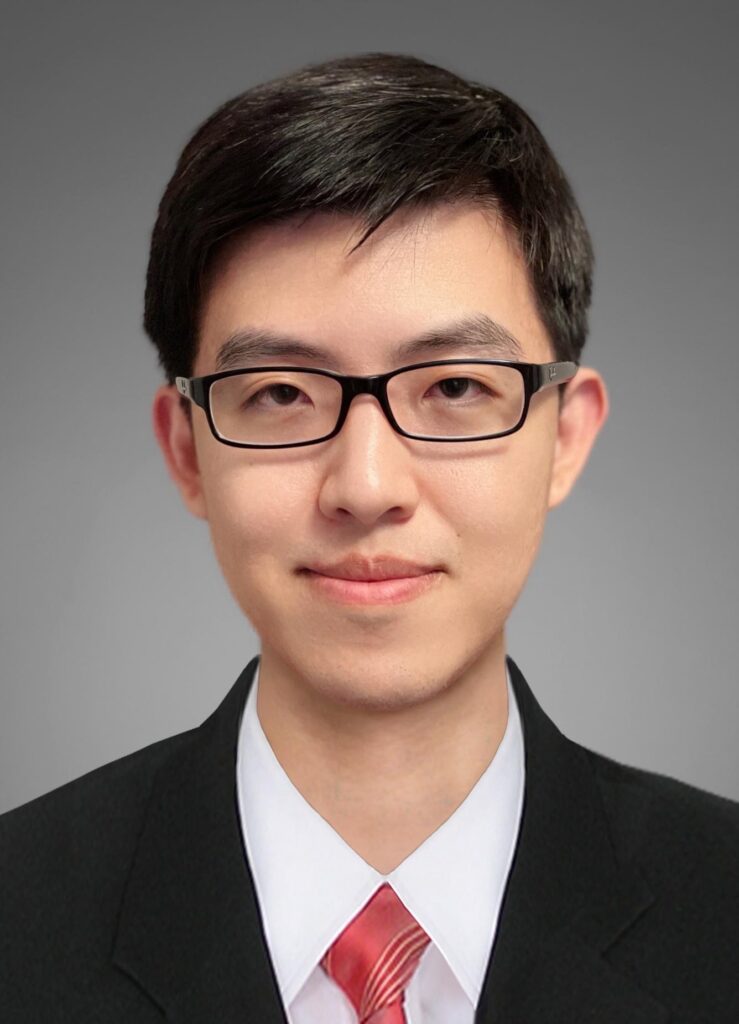
Dongchen Li
Dongchen Li joins the Department of Mathematics & Statistics as an assistant professor. He received his PhD in actuarial science from the University of Waterloo in 2017. Before joining York University, he was an assistant professor at the University of St. Thomas (2017 to 2021) and Brock University (2021 to 2023). His research focuses on principal-agent problems in (re)insurance design, risk management in finance and insurance, designing and improving modern insurance products such as variable annuities, and optimal financial and insurance decisions made by individuals.
His expertise is growing in cutting-edge areas, including machine learning in insurance and the digital transformation of the insurance industry. His work has been published in prestigious actuarial science journals like Insurance: Mathematics and Economics, ASTIN Bulletin, Scandinavian Actuarial Journal, and Journal of Risk and Insurance. His research program is currently funded by the Natural Sciences & Engineering Research Council. He is also an associate of the Society of Actuaries.
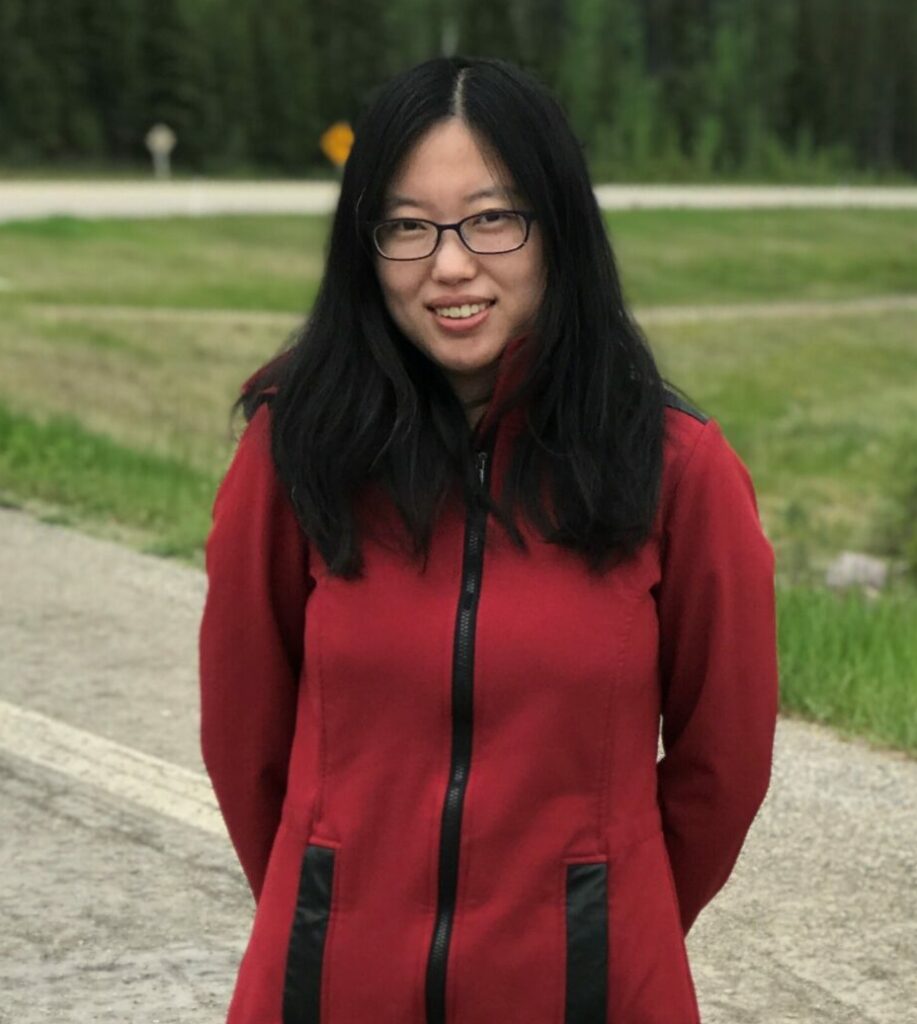
Kaiqiong Zhao
Kaiqiong Zhao recently joined the Faculty of Science as an assistant professor in the Department of Mathematics & Statistics in July 2023. She obtained her PhD in biostatistics at McGill University in October 2021. Upon completing her doctoral studies, she was awarded the Canadian Statistical Sciences Institute distinguished postdoctoral fellowship, which led her to a postdoctoral position co-hosted by the University of Alberta and the University of Toronto.
Zhao’s research program is dedicated to developing innovative and robust statistical methods tailored to the complexities of modern massive and complex data. She has authored multiple publications and developed R packages aimed at optimizing the analysis and interpretation of sequencing-derived DNA methylation data.
Her research pursuits extend to the integration of heterogeneous multi-source data and the enhancement of causal estimates derived from summary-level genetic association data. Furthermore, Zhao actively participates in collaborative scientific research endeavours, contributing to the advancement of statistical methods in various domains such as the analysis of sequencing-derived chromatin immunoprecipitation data, electroencephalogram data and clinical data.
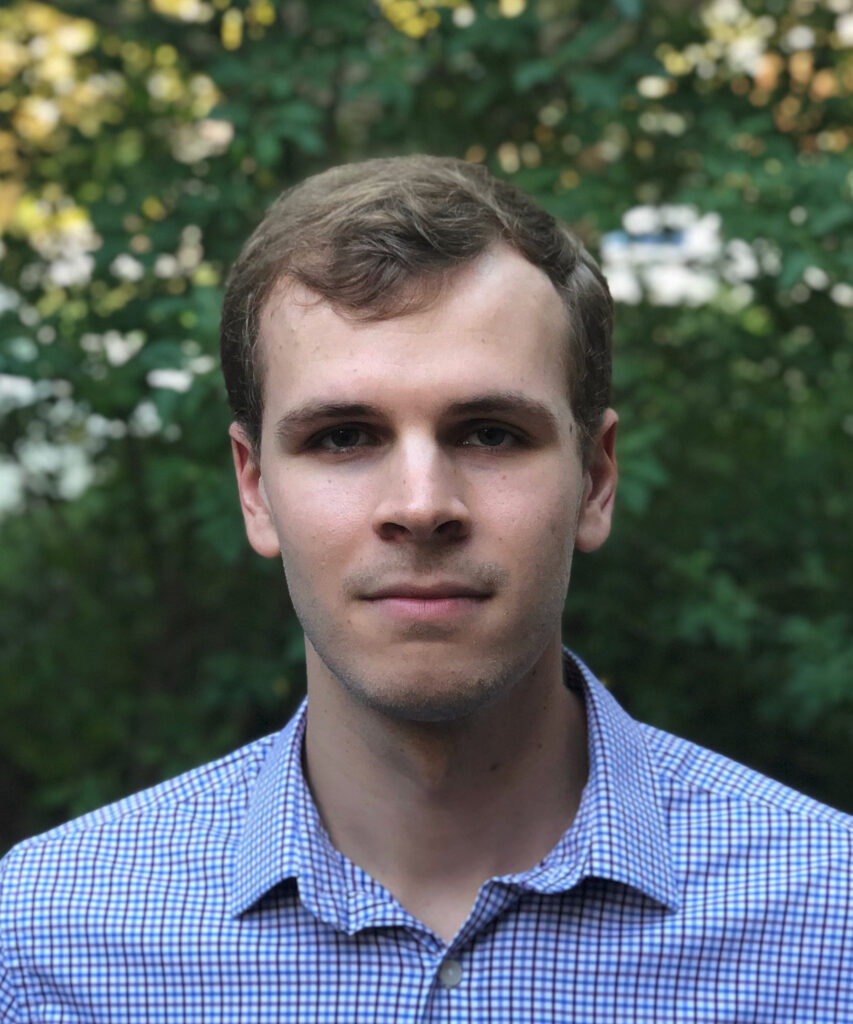
Miles Couchman
Miles Couchman joins the Faculty of Science at York University as an assistant professor in the Department of Mathematics & Statistics. Prior to joining York, he received his undergraduate degree in physics from McMaster University and his PhD in applied mathematics from the Massachusetts Institute of Technology, followed by postdoctoral work in the Department of Applied Mathematics & Theoretical Physics at the University of Cambridge.
His research is currently focused in the realm of fluid mechanics, where he has considered a variety of topics from pilot-wave hydrodynamics to geophysical turbulence, using a combination of experimental, computational and theoretical approaches.
Recently, he has been exploring how machine learning and high-performance computing techniques may be used to gain insight into turbulent mixing processes within the ocean, a key area of uncertainty in climate modelling. His work has been supported by funding from NSERC, MathWorks and the U.S. Department of Energy through INCITE Supercomputing Grants.
In collaboration with the Massive Open Online Course provider MITx, Couchman has also helped develop a series of undergraduate mathematics courses that are available to a global audience. By incorporating mathematical case studies of complex real-world phenomena into the curriculum, he hopes to inspire broader interest in using mathematics to gain a deeper understanding of our natural world.
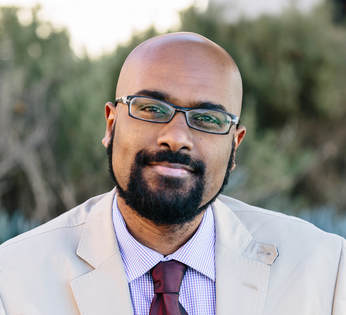
Mohamed Omar
Mohamed Omar joins the Faculty of Science as a full professor in the Department of Mathematics & Statistics. His research focuses on algebraic techniques in enumerative and geometric combinatorics and discrete mathematics.
Omar has received national awards for his research, including being the inaugural recipient of the American Mathematical Society's Claytor-Gilmer Fellowship and an inaugural recipient of the Karen EDGE Fellowship, both celebrating mid-career research. He has also earned the Henry L. Alder Award, the preeminent junior faculty national prize given by the Mathematical Association of America.
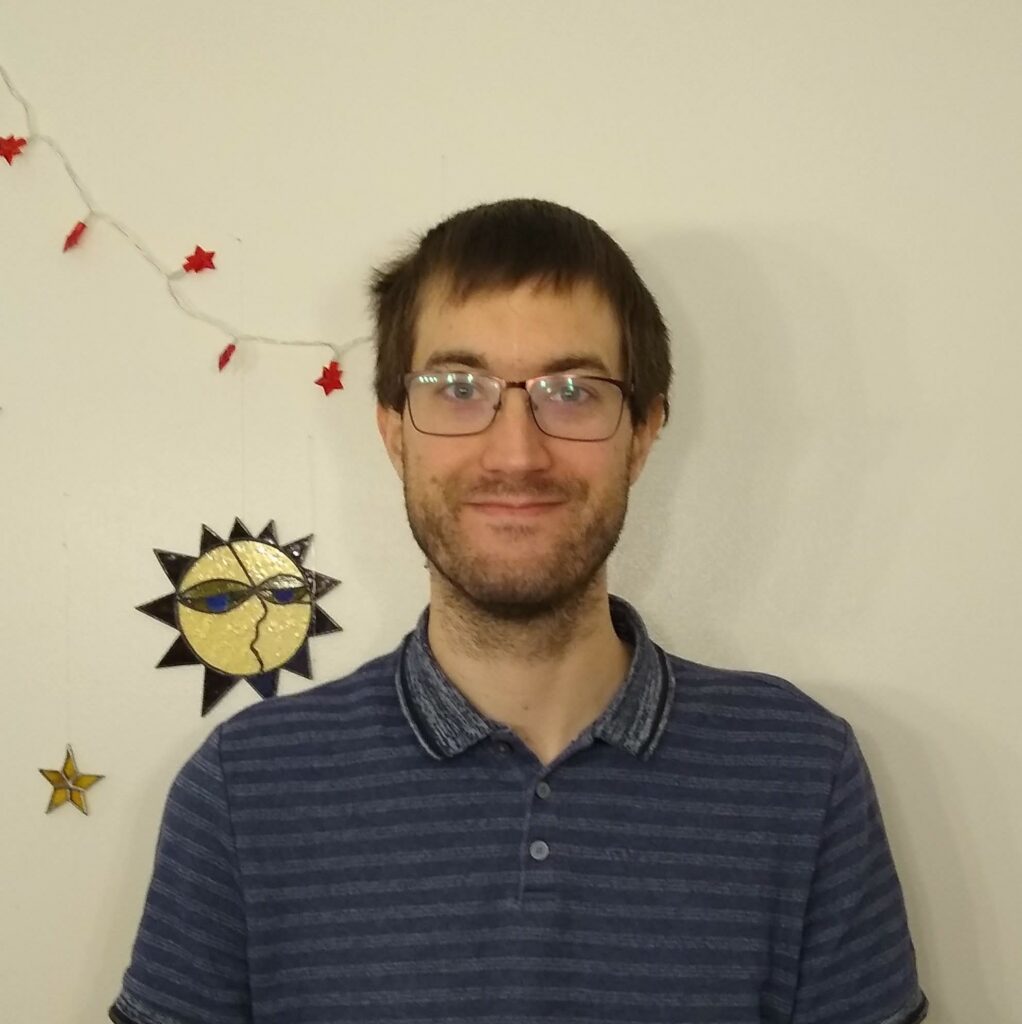
Paul Scholz
Paul Scholz joins the Department of Physics & Astronomy at York University as an assistant professor. Scholz is an astrophysicist whose research centres on observational studies of transient and variable phenomena.
He studies rapidly rotating neutron stars, called pulsars, their highly-magnetized cousins, called magnetars, and the mysterious phenomenon of fast radio bursts (FRBs). Scholz primarily uses the Canadian Hydrogen Intensity Mapping Experiment (CHIME) to uncover the nature of FRBs and use them as probes of the universe.
Prior to his appointment at York, Scholz was a Dunlap and NSERC Postdoctoral Fellow at the Dunlap Institute for Astronomy & Astrophysics at the University of Toronto. He received his PhD in physics from McGill University in 2017. While a PhD candidate at McGill, he discovered the first repetition from an FRB source. This landmark discovery showed that the FRB phenomenon could not be caused solely by a cataclysmic phenomenon.
Scholz held a Covington Postdoctoral Fellowship at the Dominion Radio Astrophysical Observatory from 2016 to 2019, where he worked on the construction and commissioning of the CHIME Fast Radio Burst instrument. CHIME has revolutionized the field of fast radio bursts, by discovering several of them per day. Scholz and CHIME's pioneering work on fast radio bursts has been recognized by an American Astronomical Society Lancelot M. Berkeley Prize, which Scholz accepted on behalf of the CHIME team, and an NSERC Brockhouse Prize.
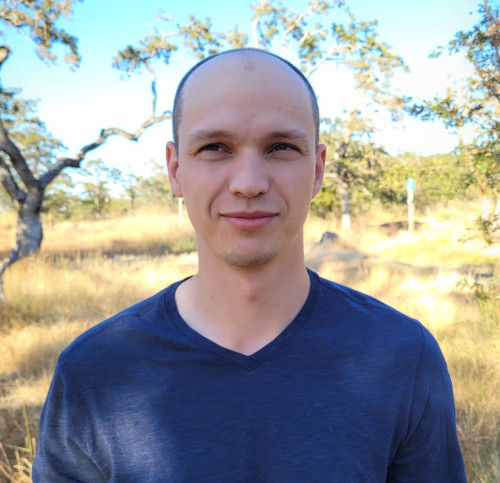
Nikita Blinov
Nikita Blinov joins the Department of Physics & Astronomy as an assistant professor.
Blinov is interested in understanding how interactions between fundamental particles shortly after the Big Bang shape the observed universe. He uses theoretical models that include new particles and interactions to explore problems such as the identity of dark matter (a major constituent of our universe), origins of neutrino masses and others. Blinov examines the consistency of these models against existing observations and develops new ways of testing them using accelerator and precision experiments, or with astrophysical observations.
Blinov completed his graduate studies in the theory group at TRIUMF, Canada's particle accelerator centre. Before joining York, he worked as a postdoctoral Fellow at the SLAC National Accelerator Laboratory, at the Fermi National Accelerator Laboratory and at the University of Victoria.

Charles-Édouard Boukaré
Charles-Édouard Boukaré joins the Department of Physics & Astronomy as an assistant professor. Boukaré is an Earth and planetary scientist interested in the interior structure and evolution of rocky planets. He completed an engineering degree in geology and a master's in science in Earth and Planetary Sciences at the ENSG Nancy / Université Lorraine in France. He received his PhD in geophysics from Université de Lyon in France in 2016.
Boukaré worked as a postdoctoral researcher at Brown University in Rhode Island from 2016 to 2018, where he initiated his work on the early evolution of the Earth’s moon. Before joining York, he had a postdoctoral position at the Institut de Physique du Globe de Paris in France. In 2022, Boukaré was awarded the Doornbos Memorial Prize, which is presented to a young scientist by the Committee on Studies of the Earth's Deep Interior for outstanding work.
Boukaré’s research focuses on the early evolution of rocky planets and planetary scale solidification processes. He aims to better constrain how initial conditions govern the long-term evolution of planetary interiors. During his PhD and postdoctoral appointments, he proposed innovative thermodynamics and multi-phase fluid dynamics models of magma ocean crystallization. He applied his approaches to the early evolution of the Earth, the moon, mercury and lava exoplanets. His main research includes high-pressure phase equilibria modelling and developing computational fluid dynamics models. Boukaré is excited to pursue his research and explore new scientific horizons with students at York University.
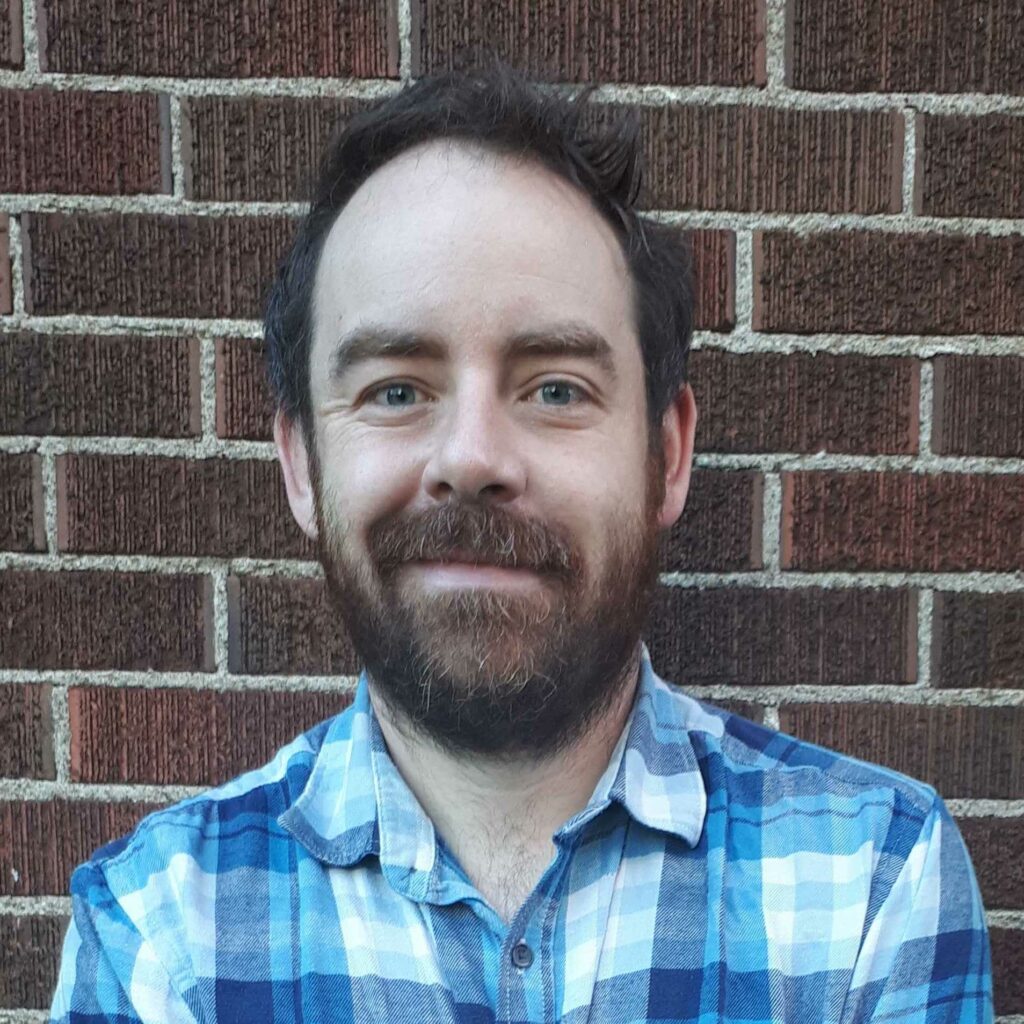
Jeremy Webb
Jeremy Webb joins the Division of Natural Science within the Department of Science, Technology & Society as an assistant professor, teaching stream. Webb has a master of science in space studies from the International Space University and a PhD in physics and astronomy from McMaster University. He went on to complete postdoctoral studies on star cluster evolution at Indiana University and the University of Toronto through an NSERC postdoctoral fellowship.
In 2019, Webb was hired as an assistant professor at the University of Toronto, where he studied planetary system evolution in star clusters, stellar streams and galaxy structure. He also led a summer undergraduate research program, taught the two largest introductory astronomy courses in Canada and taught an astrobiology-themed course about life on other worlds. At York University, Webb looks to continue teaching astrobiology- and astronomy-themed courses, while finding active and interdisciplinary ways to connect with students.
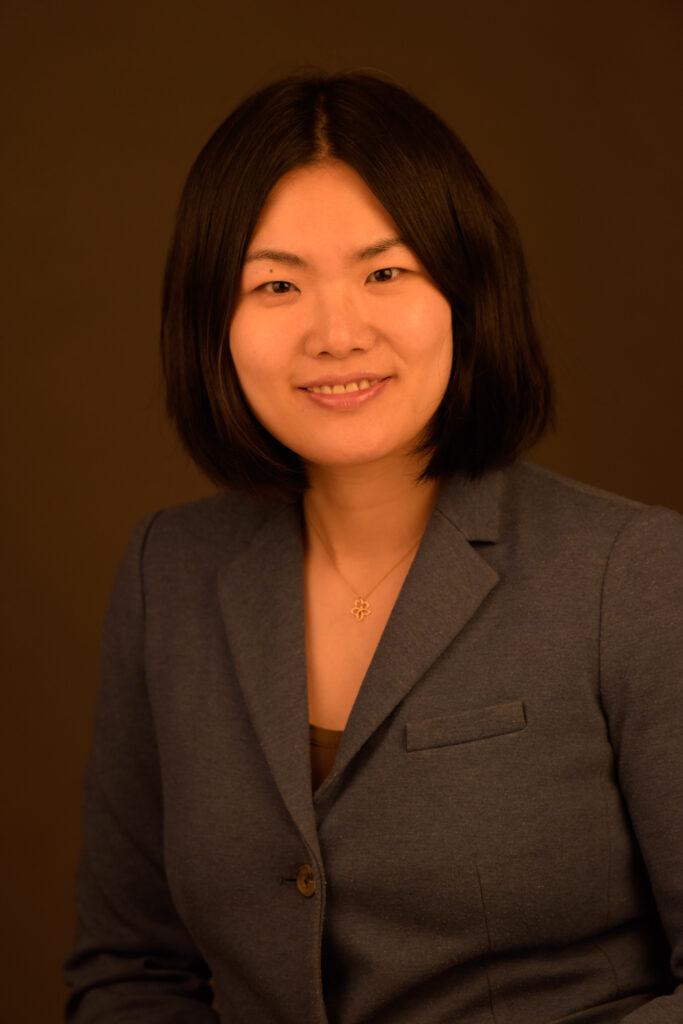
Yuqing Feng
Yuqing Feng will be joining the Department of Biology at York University as an assistant professor in January 2024. Feng received her bachelor of science from the University of Saskatchewan. She completed her PhD degree in Linda Chelico's laboratory in the Department of Microbiology & Immunology at the University of Saskatchewan. For Feng's PhD, she worked with APOBEC3 enzymes from the AID/APOBEC super family of cytidine deaminases and biochemically characterized the function of these enzymes as host restriction factors against RNA viruses and retrotransposons. As a recipient of the Canadian Institutes of Health Research postdoctoral fellowship, Feng is currently a postdoctoral Fellow in Alberto Martin’s laboratory in the Department of Immunology at the University of Toronto. There, she is working on antibody gene diversification mechanisms in B cells. Feng's research interests include DNA damage and repair mechanisms that create genetic diversity in immunity and cancer.
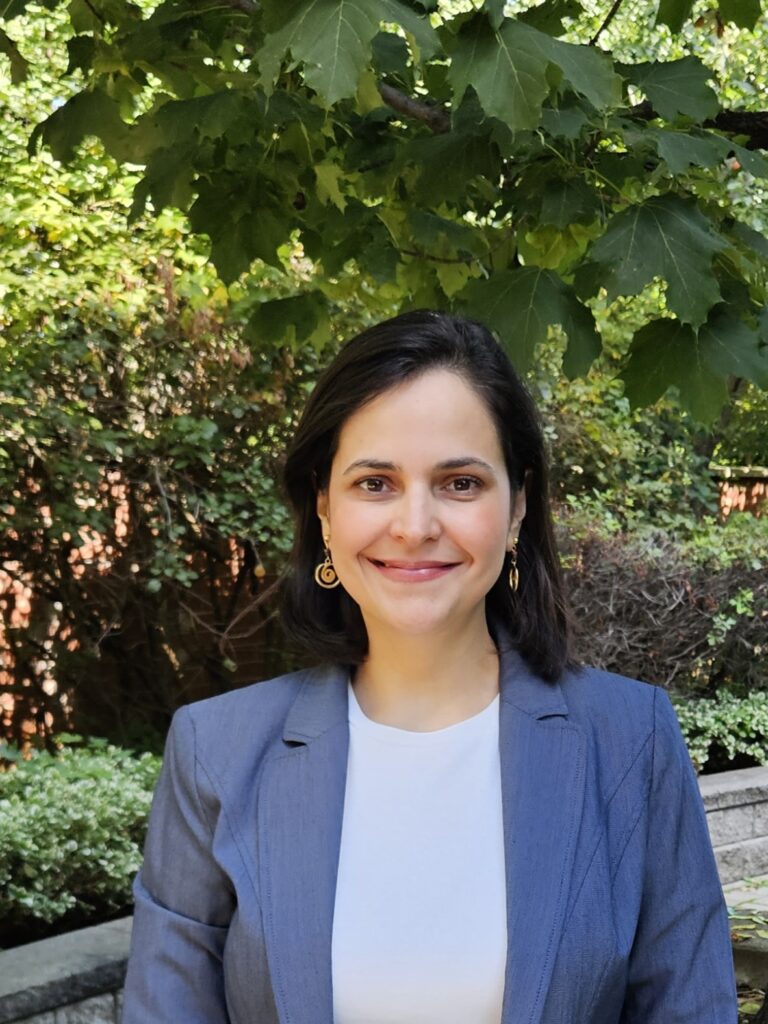
Luz Adriana Puentes Jácome
Luz Adriana Puentes Jácome joins the Department of Biology as an assistant professor, teaching stream. Puentes completed her undergraduate degree in environmental engineering in her native Colombia. She completed her master of applied science degree at Carleton University and her PhD at the Centre for Applied Bioscience and Bioengineering (BioZone) at the University of Toronto. During this time, she actively engaged in teaching biotechnology and bioprocesses. Puentes was awarded a Natural Sciences & Engineering Research Council (NSERC) Postgraduate Fellowship which took her to Delft University of Technology, Netherlands, to conduct research on the characterization and scale up of anaerobic mixed cultures for bioremediation applications.
Puentes is deeply inspired by her colleagues and collaborators in Ontario working to apply biotechnology in areas such as the production of sustainable food and biochemicals, cell and gene therapy, and environmental remediation. She is excited to combine her passion for teaching and learning with her interest in advancing biotechnology in Canada. Thus, she joins colleagues in the Department of Biology to continue to build the biotechnology programs that will be offered at the Markham campus in the Fall of 2024.
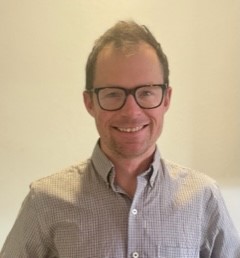
Gordon Fitch
Gordon Fitch joins the Department of Biology as an assistant professor. Fitch is an ecologist, studying how environmental stressors shape ecological interactions and thereby influence ecosystem function and biodiversity. Much of his work focuses on interactions between plants, bees, and bee disease. He uses a combination of field surveys, lab experiments, and theoretical modeling to derive mechanistic understanding of these complex interactions and leverage that understanding to promote biodiversity conservation and just human flourishing. He joins York’s interdisciplinary Centre for Bee Ecology, Evolution, and Conservation (BEEc).
Before joining the faculty at York, Fitch was a National Science Foundation postdoctoral fellow at the University of Massachusetts Amherst. He received his master of science degree and PhD from the University of Michigan. Prior to this, he was a middle school science teacher. Fitch retains his passion for communicating science to diverse audiences and promoting science as a tool for liberation and improved relations between people and planet. At York, he is excited to engage in research and teaching that advances transformative understanding of and appreciation for the complex web of interactions undergirding life on earth.
